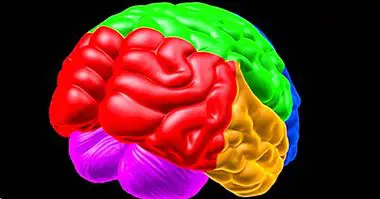Time management: 13 tips take advantage of the hours of the day
The demands of work, personal obligations and the rhythm of daily life mean that in many cases we accumulate huge amounts of work that we do not know very well how to deal with.
Thanks to adequate time management , we can diminish this accumulation of tasks and lighten the feeling of pressure and stress that usually bring.
- Maybe you're interested: "9 tips to improve concentration (supported by science)"
Take advantage of the hours of the day: do more with less
The optimal management of time is a very important skill both at work and at the time of carrying out activities of our daily life and, although this seems more than evident, not all people are able to organize their time and tasks of the most effective way
Poor time management can almost certainly lead to high levels of stress and, obviously, lack of productivity . Therefore, at the moment in which the person is able to understand and assimilate how to organize their time correctly, they can also foresee possible conflicts and plan alternative solutions.
As mentioned above, knowing how to properly manage time is a skill and as such is capable of being trained and improved. Even though this is not difficult, requires discipline and perseverance .
The first step will always be to be aware and accept that we are not working well or making good use of our time, and then propose a series of guidelines to follow. over time they will end up becoming habits that we will do automatically.
Below we suggest a series of tips to improve time management, which will help us to be much more productive in less time and consequently, help us to feel better with ourselves.
- Related article: "The 5 benefits of teamwork"
13 tips to improve time management
Below we present a series of tips that, applied daily, will boost our productivity and prevent us from unwittingly wasting time.
1. Positive attitude
Maintaining a positive disposition and attitude towards our work is essential to invest our time effectively and effectively. This motivation posture will make it easier for us to have a clearer mind and to plan our work better. If a task is posed in a way that does not motivate, surely we end up looking for excuses to distract us, something that we have to avoid .
2. Be realistic
It is illogical to try to cover more tasks than we can really do. Another important point when it comes to correct time management is Be realistic and honest with yourself and know what we can do and what not.
Otherwise, the only thing that we will achieve is that we get invaded by frustration and stress.
3. Set goals
Having clear objectives is essential to know where we are going. However, the marked objectives must have a series of characteristics that makes them viable. For this they must be:
- Claros
- Quantifiable
- Feasible .
- Affordable
4. Clarify tasks
Having clear what tasks have to be done to achieve the objectives is essential to avoid wasting time in activities that we do not know if they will be useful or not. A good trick is break them down and turn them into smaller and simple tasks . The reason is that these will cost us less and therefore we will not waste energy on them.
5. Prioritize
It is obvious that not all tasks or objectives are equally important and urgent, so that draw an action plan and prioritize tasks it will help us to be organized, to be able to keep track of our achievements and anticipate possible complications.
6. Create an agenda or calendar
Once our tasks are prioritized, the next step is to plan them. Optimal planning will avoid the occurrence of unforeseen tasks and forgetting to a minimum, so it will leave us more time for our free time.
7. Perform lighter tasks before
There is a law in time management that says that if we have one or more tasks that we can perform in two minutes or less, we can do them immediately. Otherwise, after a heavy task we still have many small and light tasks for which we no longer have energy.
Also, if we follow this rule also we will feel more fulfilled having done many things in a very short time .
- Maybe you're interested: "Learn to value time"
8. Focus on a single task
It is very important not to try to monopolize several tasks or activities at the same time. Although we have many things to do, it is better to do them one by one , thus ensuring a good concentration and optimal performance.
9. Reduce distractions
By distractions we understand any possible external stimulus that deviates our attention from the task we are doing. Mobile phone, internet, social networks, other people or tasks, can divert our attention from work, so it is necessary that they are as visible or possible as possible.
In the event that an unforeseen or task to be performed appears, it is better to leave it annotated and do it later, to do not interrupt the activity .
10. Rest
It's not worth overloading yourself and putting up with fatigue only for trying to finish earlier or doing more tasks. It is necessary to rest every so often, change position and make our brain rest and be a little distracted. On the contrary, it is more likely that this accumulation of fatigue will eventually tire us more, make us less agile mentally and give us the feeling that we can not do everything.
11. Disconnect
Just as it is necessary to rest while doing a task, it is essential to disconnect once we have finished the day. As far as possible, leave the tasks for work or work hours and devote free time to disconnect and invest it in ourselves.
12. Caring for the means and the workplace
Equally important is taking care of our attitude as well as our workplace. We must make sure we have everything we need to be prepared , as well as ensuring that everything works correctly.
A space or place of work ordered and with the right conditions will help us to perform better and not waste time in other matters.
13. Avoid procrastination
Procrastinate means postpone, delay or postpone all those activities or habits that we want to do or we do not feel motivated, replacing them with others that stimulate us more or are more irrelevant.
- Related article: "Procrastination or the syndrome of" I'll do it tomorrow ": what it is and how to prevent it"



















